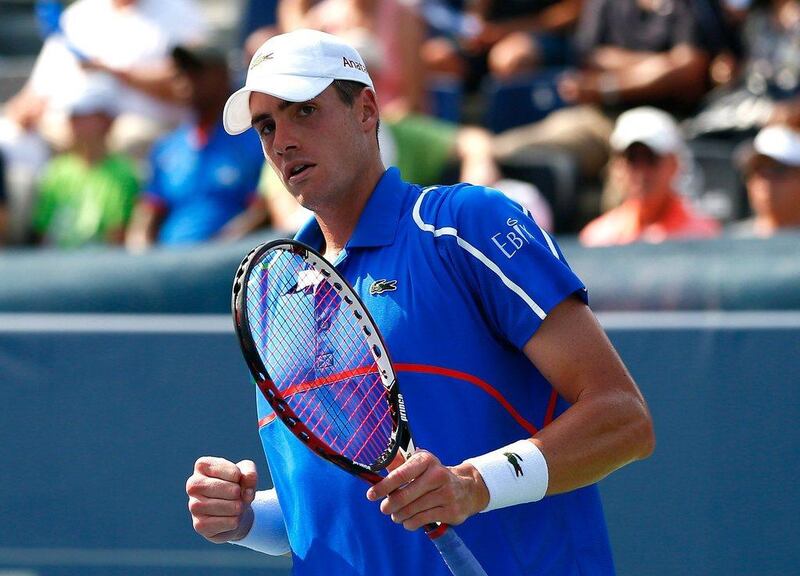John Isner won his ninth career ATP title on Sunday, beating Dudi Sela in the final of the Atlanta Open. You’ll be forgiven if it escaped your notice.
As far as ATP singles titles go, there wasn’t much to distinguish it by. Isner ran through a rather tame gauntlet in world No 49 Marinko Matosevic and compatriots Jack Sock (No 60) and Robby Ginepri before breezing by world No 88 Sela in the final.
It was Isner’s second straight Atlanta title. Of his nine, seven have been won in only four different tournaments in the United States. All have been at the 250 Series level.
All the knocks on Isner are familiar. Only one quarter-final appearance at a grand slam, a 3-15 record against the Big Four and a remarkably meager record at tournaments of note (two 1000 Series finals, three semi-finals in 44 appearances) for a player ranked 12th in all the world.
The 6ft 10ins Carolina-bred behemoth uses all that strength and size to grand effect on serves and little else. It’s borderline laughable how many of his scorelines read 7-6 or 6-7. He is, the prevalent criticism goes, a one-trick pony.
And, well, he kind of is. It’s not really an inaccurate critique. But it also needs to be said that it’s a pretty great trick.
Isner lofts the ball into the air and brings all of that 6ft 10ins frame crashing down on it with ferocity and remarkable control for what is inarguably one of the best serves in the game. If it can be returned, he has an equally powerful, if sometimes less accurate, forehand waiting.
If it gets much farther than that, though, or if he’s facing serve, he’s usually toast. And that’s fine.
For those that have even heard of him, John Isner represents something like the more disappointing heir to the mantle of American tennis after Andy Roddick had disappointingly occupied it for roughly a decade after Agassi/Sampras.
It must be an onerous weight to hold – even when he succeeds, his celebrations seem to indicate less joy than defiance.
It isn’t fair. He’s racked up a list of accomplishments most of the near-anonymous pros on the ATP circuit would be happy to have, including his nine titles and a winning role in one of tennis’ all-time memorable matches.
The next Great American Tennis Pro isn’t walking through that door, no offence to Jack Sock, so let’s agree that it’s okay to appreciate the Pretty Good American Tennis Pro.
Isner has a singular talent, but it’s a legitimate talent and he’s made the most of it to win a few titles and admirably carry the flag for American men’s tennis as best he could. Nobody will mistake him for being great, but he ain’t bad, either.
It’s okay for John Isner to be John Isner. In fact, it’s about time he got some appreciation for it.
jraymond@thenational.ae
Follow us on Twitter @SprtNationalUAE





